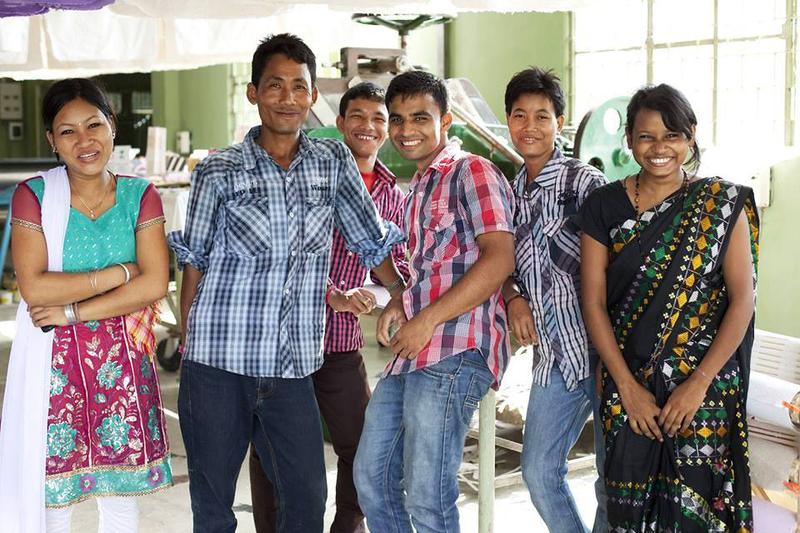Paper from Elephant and Rhino Excrement

Have you ever heard of the paper made from the excrement of elephant and rhino? Can you imagine if anyone can manufacture it? But a father and daughter in Guwahati made it true as part of their initiative to conserve wildlife in Assam.
Mahesh and Nisha Bora established an organization, ElRhino in Guwahati two years ago to convert elephant and rhino excrement into paper and notebooks. The establishment of the company is fascinating.
Nisha Bora is from Mumbai. She is a corporate executive. Her father is a retired mining engineer who found an article which described about converting the excrement of elephant to paper in Rajasthan where elephants are not found commonly. He then decided to implement this in Assam. When Nisha visited her father, she was curious about his research.
After a thorough research and recce of the necessary logistics, they founded ElRhino and its manufacturing unit in a village close to Guwahati. Currently 50 employees are working in this company out of which 15 are full-time employees. The remaining are outsourced employees that work occasionally for a specific period by developing indigenous designs, sourcing banana plants etc.
As both rhino and elephants are vegetarians and eat plenty of grass, their dung is full of fibre. To retrieve fibre, the collected dung is washed first. Then it is boiled with banana plants for extra fibre. After that, pulping is done to cut it into pieces.
Later, paper is made and dyed in various colors. Initially, not many people were interested to take the paper made from excrement. So, Nisha has been convincing prospective buyers about the benefits of these kind of papers and also about their quality and versatility. The company also decided to manufacture not just paper, but notebooks, playing cards and journals.
Now, their products are attracting more customers and gaining popularity. Nisha says that they are protecting the One-Horned Rhinos by creating an atmosphere to support them. The animal is considered as a respected animal in Assam.
Due to importing cotton from other states for making paper, paper is somewhat expensive. The company wants to reduce costs by making their paper completely cotton-free in future.
Image Reference: TheBetterIndia








Leave a Reply